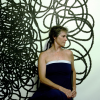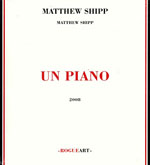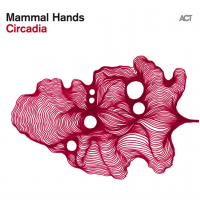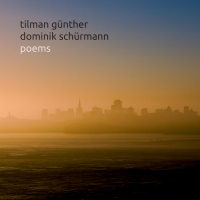Home » Jazz Articles » Album Review » Matthew Shipp: Un Piano
Matthew Shipp: Un Piano
On his second solo album, Un Piano, pianist Matthew Shipp demonstrates his fearlessness in stepping outside of the standard that he has set for himself in the past to define yet another standard to support his continuation, through his indisputable interactions with the cosmos.
Bolstered by the grammar of his ornament-less language, nothing keeps Shipp from going inside the piano to literally mark a path to enter into his improvisations for this recording. Timed silences between one sound and another maintain the flow of the motion as well as the separation between them. The three minute overture, "Enter In," presents in an uncomplicated manner how to listen to the next forty-five.
Since his first solo album, One (Thirsty Ear, 2006), Shipp has refined the phases of his music's evolution. "Geometry" progresses logically from "Enter In" fully onto the keyboard. Thereafter, the recording unfolds and builds intelligently through masterful design.
Un Piano resembles a series of etudes ("Harmony of Apollo" reflects Bach's fugue variations). Yet, the overall album's fluidity and internal nuances are more than magnified. The distinctions between one musical notion and the next, not only from one piece to the next but within each piece, are sharpened. Additionally, Shipp brings attention to the concept that tempo mirrors the rhythm of the human body as much as written time signatures can denote pace.
Shipp's crashes through barriers throughout the recording, but heard in the exact middle of the recording ("Two Things Come Together"), a bass alternating two-chord ostinato culminates a piece that begins softly, has melodic, bluesy overtones, and a mid-range single note repetition pointing to the near future ("Exit Out"). The bass ostinato signifies improvisational epiphany, hinges back to front, past to present and old to new. The idea of totality surmounts duality.
Reformulating his straightforward language does not mean that Shipp erases anything. It means that precedence feeds spontaneity. It means that he has permission to press the sustenuto pedal for as long as it takes for the resulting impact to fade away ("Enter In," Cloud Chamber 6"). It means that he can touch the keys more expressively and clearly than ever before ("Linear Shocks"); it means that the phrases, chords and note progressions, which often can transmute rhythmically to tunes, are juxtaposed so abstractly that their articulation exceeds all expectations ("Whole Zone," "Cloud Chamber 6").
Shipp reaches sonorities similar to the ones he has discovered before, but has found them starting from a different standpoint, a wider yet more honed transfiguration of the 88-key spectrum within which he breathes. Un Piano not only indicates that one piano is being played on this recording but also that Matthew Shipp is playing it.
Track Listing
Enter In; Geometry; Sparks; Spike; Linear Shocks; Two Things together; Whole Zone; Simple Fact; Riddle; Cloud Chamber 6; Harmony of Apollo; Exit Out.
Personnel
Matthew Shipp
pianoMatthew Shipp: piano.
Album information
Title: Un Piano | Year Released: 2008 | Record Label: Rogue Art
Tags
PREVIOUS / NEXT
Support All About Jazz
 All About Jazz has been a pillar of jazz since 1995, championing it as an art form and, more importantly, supporting the musicians who make it. Our enduring commitment has made "AAJ" one of the most culturally important websites of its kind, read by hundreds of thousands of fans, musicians and industry figures every month.
All About Jazz has been a pillar of jazz since 1995, championing it as an art form and, more importantly, supporting the musicians who make it. Our enduring commitment has made "AAJ" one of the most culturally important websites of its kind, read by hundreds of thousands of fans, musicians and industry figures every month.




















